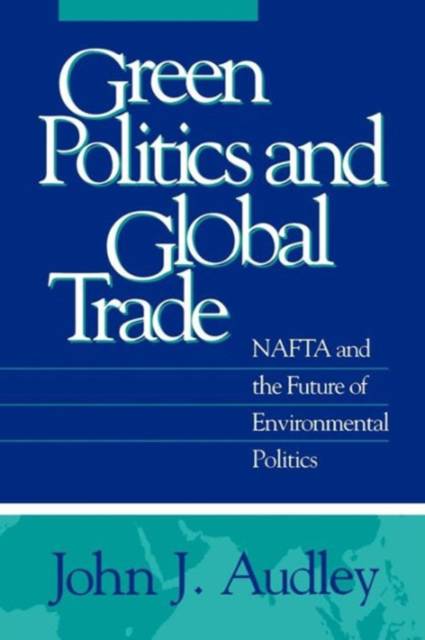
- Afhalen na 1 uur in een winkel met voorraad
- Gratis thuislevering in België vanaf € 30
- Ruim aanbod met 7 miljoen producten
- Afhalen na 1 uur in een winkel met voorraad
- Gratis thuislevering in België vanaf € 30
- Ruim aanbod met 7 miljoen producten
Omschrijving
Environmental groups for the first time formalized their role in shaping U.S. and international trade policy during their involvement in NAFTA negotiations. John J. Audley identifies the political forces responsible for forging this new intersection of trade and environment policy during NAFTA negotiations, analyzes the achievements of the environmentalists, and explores their prospects for influencing future trade policy.
The need to reconcile the conflicting paradigms of economic expansion through free trade and that of limited sustainable development played a significant part in the political debate. Reluctant to acknowledge any relationship between these two principles, traditional trade policy actors were forced to include environmental interest groups in negotiations when the latter seriously threatened the treaty by aligning themselves with other anti-NAFTA interest groups, particularly labor. Other environmental groups worked with trade advocates to secure compromises in the agreement. The final bill included unprecedented environmental provisions, but not without serious infighting within the environmentalist community.
Drawing on his access to private as well as public documents exchanged among participants, Audley explores the interactions among the political actors. He explains how political compromises between environmental groups and trade policy elites came about, focusing in particular on the roles played by eleven national environmental organizations. In identifying their accomplishments, he concludes that although the environmentalists won some procedural changes, they failed to modify the norm of unfettered growth as the guiding principle of U.S. trade policy.
The first book to probe the role that environmental politics play in trade policy, this volume offers new insights into the political effectiveness of environmental organizations.
Specificaties
Betrokkenen
- Auteur(s):
- Uitgeverij:
Inhoud
- Aantal bladzijden:
- 232
- Taal:
- Engels
- Reeks:
Eigenschappen
- Productcode (EAN):
- 9780878406517
- Verschijningsdatum:
- 1/09/1997
- Uitvoering:
- Paperback
- Formaat:
- Trade paperback (VS)
- Afmetingen:
- 150 mm x 229 mm
- Gewicht:
- 312 g

Alleen bij Standaard Boekhandel
Beoordelingen
We publiceren alleen reviews die voldoen aan de voorwaarden voor reviews. Bekijk onze voorwaarden voor reviews.











